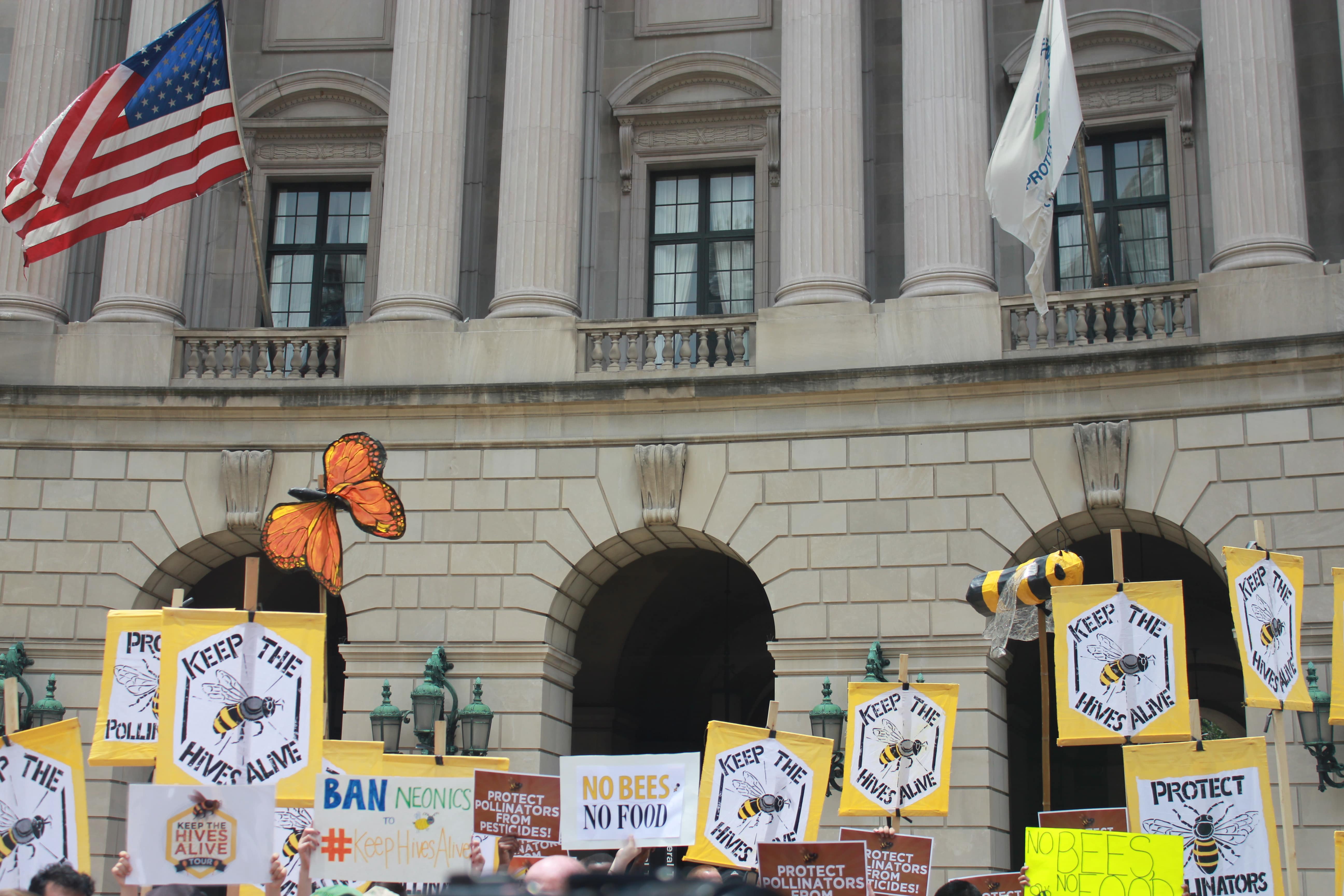EPA report confirms bee-killing pesticides don’t help many farmers

This fall, the EPA released a report confirming what scientists have long been saying: soybean seeds coated in neonicotinoid pesticides, which contribute to mass bee deaths, “provide negligible overall benefits” to soybean growers. The report provides yet another reason that we need to suspend these bee-toxic pesticides take large-scale action to protect bees and other pollinators on which our food system depends. That’s why we’re calling on those who care about bees and who eat the food they help pollinate (read: everyone) to submit a comment to the EPA in support of acting on these findings.
The report, entitled “Benefits of Neonicotinoid Seed Treatments to Soybean Production,” notes that each year in the United States, farmers grow on average, over 75 million acres of soybean crops, of which about 30 percent is comprised of neonicotinoid-coated seeds. As Tom Philpott of Mother Jones points out, that equals an area roughly the size of Indiana (24 million acres) covered in neonicotinoid-treated soybean crops. According to the EPA’s research, these pesticides “likely provide $0 in benefits” to farmers who use them, next to comparable crop protections. In most cases, the EPA found pre-coated neonicotinoid seeds were no better for crop yields than using no pesticide at all. One reason for this could be that the neonicotinoids are only effective in the first several weeks of planting, while the pests they are intended to target do not threaten the crops until after this period.

The widespread prevalence of pretreated neonicotinoids in soybean crops stems from a loophole in EPA policy regarding “treated articles.” This has allowed pesticide manufacturers like Syngenta and Bayer to sell neonicotinoid-coated seeds without the EPA questioning their exact adverse impacts on the environment.
Those manufacturers, of course, have been panicking since the release of the soybean report. In November, Syngenta, Bayer and Valent U.S.A. released their own report touting the efficacy of neonicotinoids, while industry groups have reiterated their narrative that bee die-offs are primarily due to varroa mites. The latter has been an ongoing tactic manufacturers of neonics use to distract attention from the impacts of their products on bee health. Bayer Cropscience even created a separate, nonbranded website disputing the EPA’s findings.
Given this mass of industry pressure, driven by the millions of dollars on the line for large agrochemical corporations like Bayer, activists concerned with pollinator protection will need to push back in support of the report’s findings. Without any benefit to many farmers, and given strong body of evidence demonstrating neonicotinoids harm bees, other pollinators, and entire ecosystems essential for food production, there should be no question that the EPA should follow the weight of the science and suspend the use of neonicotinoids.
Top image: Flickr/bee_009, Creative Commons
